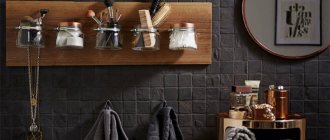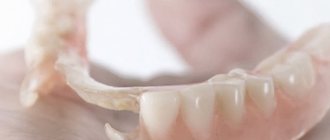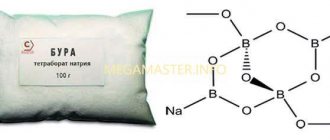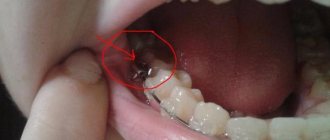A pebble in kozinaki, a fragment of a bone in a cutlet or sausage, an attempt to crack a nut shell with your teeth - these are the most common reasons why a tooth can be broken. Some will immediately call the dentist to fix the damage as soon as possible, while others will turn to the Internet for help, where they will certainly find articles about how the author restored his own tooth, put a filling at home, or even regrew a chipped piece. What is true, what is fiction, and what advice is downright dangerous to follow, we will talk today.
Is it possible to grow a tooth yourself?
Do human teeth grow? Yes, of course, they grow, because children no longer have “adult” teeth erupting. By this logic, it is quite possible to grow a tooth on yourself. But it was not there! Let's turn to the facts that the science of biology provides us.
In humans, tooth growth stops at 15-17 years of age. This process is genetically determined. Every person's teeth contain stem cells from which teeth could be re-grown. However, for reasons unknown to science, these cells “sleep”. Unlike sharks, camels, mice, beavers and other animals, whose teeth regenerate (grow) throughout their lives.
Only in 2022, biologists discovered the DLK1 protein in mice, which activates dental stem cells. Perhaps further study of it will answer the question: “Is it possible to regrow teeth?” So far, it is impossible to even “revive” a tooth again after removing the pulp (nerve), and science has not even begun to grow it again.
Getting used to removable dentures
As a rule, getting used to removable dentures takes some time. But after the “grinding in” period, a person already perceives the prosthesis as an integral and irreplaceable part of his body.
How long does it take to get used to dentures?
On average, the period of adaptation to dentures for a patient lasts thirty days. At first, dentures feel like a foreign body in the oral cavity, but this is quite natural, because a removable denture is an orthodontic structure. At first, removable dentures may even impair diction. This is especially difficult for people who, due to duty or other life circumstances, regularly communicate in foreign languages. But soon you will get used to it and your speech will be restored.
The presence of an orthodontic structure in the oral cavity initially disrupts the process of salivation and prevents a person from objectively assessing the taste and temperature properties of the food consumed. Also, during meals in the first month of wearing removable dentures, it may be difficult for a person to bite off solid food and chew a piece.
Caring for removable dentures also takes some getting used to. To help you remember, try posting reminders of what needs to be done. Over the course of some time, caring for removable dentures will become automatic.
But there is no need to worry and worry in all of the above cases. Typically, the patient’s symptoms of getting used to a removable denture disappear during the first week of wearing. Within a month, you will physically stop noticing the removable denture and will not consider it a foreign body. Moreover, most patients note that after an adjustment period they feel more comfortable with dentures in the mouth than without them.
How to quickly get used to removable dentures
The main condition for quickly getting used to removable dentures is their constant use despite some discomfort. It's worth it - it's better to wait one week and then enjoy a quality and comfortable life. There are several recommendations and tricks that will help the body go through the adaptation period faster.
During the adjustment period, before placing the denture in the oral cavity, moisten it with water or apply a special fixative to its surface. Practice putting on and taking off removable dentures first, so that later this action becomes mechanical. If you start to feel nauseous, suck on a small piece of candy by pressing your tongue against the roof of your mouth.
For up to two weeks, when you get used to the dentures, do not take them off even at night. They should only be removed to clean the mouth and the denture itself. Reading aloud for two hours in a quiet environment will again help “tune” your diction. This exercise restores the articulation of sounds in five to six days. Rinse your mouth with warm water about eight times a day and drink hot tea more often. Cut foods into small pieces before eating. It is better to chew food with your lateral teeth, both left and right at once. Eat more vegetables and fruits.
Myths about tooth extensions at home
Nevertheless, on the Internet there are “professional” tips on how to grow teeth at home. Something like this: eat chalk, ground animal bones and teeth into dust. It is also recommended to rinse your mouth with an alcohol tincture of propolis and calamus root, consume more milk and fish, and add crushed chicken egg shells to your food. If you apply this whole complex, then supposedly your teeth will grow slowly, but.
If this were true, potential dental clients around the world would have long ago exclaimed: “We grow teeth at home!” Propolis, fish and milk probably won’t make your body worse. Bone meal is included in the diet of farm and domestic animals as a source of calcium. It is also used as fertilizer.
Many scientists agree that eggshells can be eaten by people with a lack of calcium in the body. The shell of chicken eggs is 90% calcium carbonate.
We will not dispute or confirm the benefits of bone meal, eggshells, milk and propolis for teeth. However, they will not help in any way to grow a tooth at home, since they do not affect human genetics. We will not discuss the obviously ridiculous advice on how to regrow your teeth yourself with the power of thought. In humans, they basically cannot regenerate.
To grow a tooth or strengthen the enamel?
All advice on how to grow teeth at home only concerns strengthening tooth enamel. It is really possible to build up, or rather strengthen, tooth enamel at home. With age it becomes thinner; various metabolic disorders in the body, lack of calcium and fluoride make it loose, which is why the tooth is easily attacked by bacteria. To avoid problems, you need to take vitamin complexes, review your diet, and use special toothpastes and mouthwashes.
Under no circumstances should you prescribe all this to yourself. Be sure to consult your dentist! The clinic will offer you a remineralization procedure, the purpose of which is to strengthen the enamel. This will help keep your teeth healthy, but you won’t be able to build them up this way.
Is it possible to put a filling at home?
Anyone can experience an old filling falling out. In this case, the tooth is restored only in a dental office. True, there are thrifty craftsmen who post videos on the Internet about growing a tooth at home, or rather, about replacing a filling yourself. For this purpose, dental cement and food grade phosphoric acid are used.
However, in this way you also preserve the infection, which clearly developed under the old filling. Bacteria will continue to destroy the tooth from the inside. The only solution is to go to the dentist, where the remaining filling material will be removed, the cavity in the tooth and the root canals will be cleaned. And then the tooth will be filled again.
Similar advice is found for cases when a poorly installed crown falls out. “Experts” seriously discuss how to glue an extended tooth at home. The result of doing it on your own will be the same - an infection will develop under the crown glued at home, and within a couple of months the tooth will begin to decay.
Causes of tooth crown loss
Before looking for ways to glue a temporary prosthesis, let’s figure out why it fell out. There may be several reasons for this:
- hard and sticky foods (chewing candies, nuts);
- the end of the service life of the cement on which the crown was previously glued;
- habit of chewing hard objects (pens, pencils);
- formation of deposits on the edges of the crown;
- low teeth that do not allow the crown to attach well. (Specialists eliminate this drawback by using special resins in their work).
Reinforcement of partially lost teeth
As you already understand, the problem of how to regrow teeth cannot be solved at home; only a dentist can do this.
- Extension with composites. A tooth that is no more than half destroyed is restored with composite materials - light-curing fillings. The doctor applies the composite layer by layer, treating each of them with an ultraviolet lamp. Finally, the surface is sanded and polished.
- Extension with tabs. A more durable, high-quality and aesthetic alternative to composite fillings is ceramic inlays. They completely replicate the lost part of the tooth, and are manufactured using high-precision CAD/CAM equipment. Dental cement is used for installation.
- Extension with crowns. If the tooth is significantly damaged, it is depulped (the nerve is removed), ground down, and a crown is attached to it like a cap using dental cement. It can be made of metal ceramics, ceramics or zirconium dioxide. In cases where only the root remains of the tooth, it is possible to install a crown on a pin.
- Extension with veneers. If cracks, chips have formed on the surface of the front teeth, or simply their shape does not suit the patient, teeth can be augmented with thin (up to 1 millimeter) ceramic plates. They are glued to the outside of the teeth after pre-treatment. The result is a Hollywood smile with perfect teeth.
Why do crowns fall out?
This may be due to:
- Loss of cement elasticity, causing the crown to become uncemented.
- Damage to the prosthesis due to heavy loads when chewing or biting off hard food.
- By installing temporary cement that has not been removed.
- The beginning of the appearance of caries at the edges of the tooth.
- Frequent consumption of viscous foods - toffees, chewing sweets.
- Installing the product on a small tooth.
Whatever the reasons for the loss, this defect will not be attractive. And correctly selected glue will eliminate the disadvantage.
There are professional compounds for attaching single crowns and bridges. They securely fix crowns, but are sold only in specialized stores and are very expensive (from 5 thousand rubles and above). There are also simpler options that can be found at a regular pharmacy.
Here are a few of the most affordable ones:
- Polyacrylin from (Belgorod region) is a two-component dental adhesive for crowns based on finely dispersed special glass, polyacrylic and tartaric acid. Suitable for permanent fixation of metal and non-metal dental crowns, bridges, as well as for quick attachment of inlays and pins. Polyacrylin has high adhesion, an anti-caries effect, good biological compatibility, and ensures absolute reliability of fixation. The composition of the two-component adhesive includes powder 10 g + liquid 8 g. The powder is fluoride glass, the liquid hardener is polyacrylic acid. When the components are mixed, a plastic composition is formed, which hardens into durable cement. Packaging costs about 700-800 rubles.
- Cemion-F (VladMiva, Belgorod) is a set of three components for fixing crowns and other orthodontic structures. The kit includes: powder 20 g, liquid hardener 15 ml, conditioner 10 ml. The adhesive composition, obtained by mixing powder and hardener, has high adhesion to enamel, increased mechanical strength and low solubility. Provides reliable sealing of the adhesive joint, releases fluoride for a long time, which strengthens the hard tissues of the stump and prevents the development of secondary caries. This inexpensive compound can be used as a temporary adhesive for crowns. The cost of the set is 450-500 rubles.
- GLASSIN Fix (“Omega Dent”, Moscow) is a two-component dental dental adhesive (powder + solution system). The powder is the smallest particles of fluorosilicon glass, the liquid is a hardener based on an aqueous solution of polyacrylic acid. GLASSIN Fix has high adhesion to dental tissue and good biological compatibility. Due to the prolonged release of fluoride ions, an anti-caries effect is ensured. The set is sold in pharmacies and costs about 600 rubles.











